Nov 2015 Q3
Obonku limited Produces Single, Double, and King size beds for sale to hotels in West Africa. Its manufacturing plant is located in Tema and currently producing at 100% capacity. Below is the annual output and sales for each product and the associated costs.
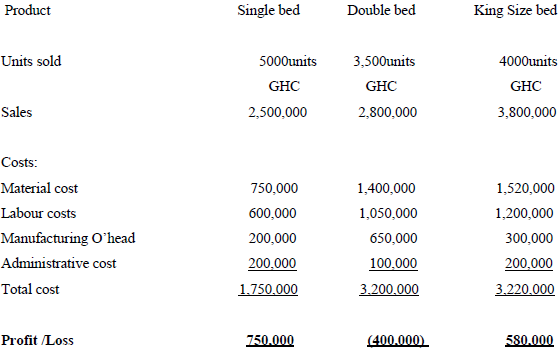
The Director of Obonku is of the view that the product, Double bed is not doing well and must not be produced any longer. The following additional information has been provided.
i. 40% of the labour cost for all bed type are fixed costs.
ii. 50% of the manufacturing overhead is variable costs for all products.
iii. 80% of the administrative cost is fixed.
Alom hotel limited situated at Elimina has requested for 80 units of each bed and they are ready to procure them at the current prices. Obonku ltd can only produce more if they increase production capacity in the short term at an additional cost of GHC80,000.
Assuming that costs and prices remain the same.
You are required to:
a) Advice whether the company should shut down the production of Double beds. (10 marks)
View Solution
Calculation of contribution that will be lost if Double bed cease production.
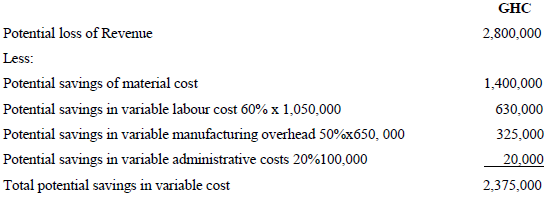
Potential contribution to fixed cost that will be lost 425,000
From this calculation it implies that a contribution of GHC425,000 will be lost if double bed production ceases. Profit will decline by this figure since fixed cost component will still be incurred. Therefore the company should continue production.
Student who approach it the long way to achieve a profit reduction of GHC425,000 should be awarded the full marks as shown below:
ALTERNATIVELY:
INCOME STATEMENT (During Double Bed production)
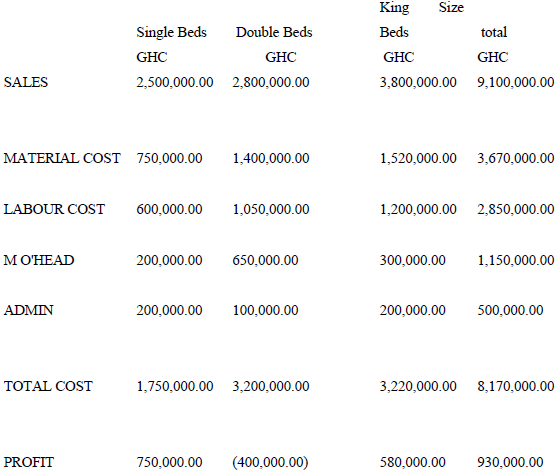
INCOME STATEMENT (During Double Bed shut down)
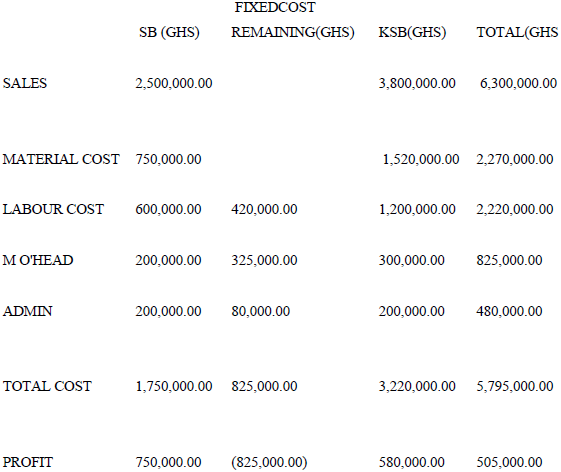
In this case profit reduced from GHC 930,000 to GHC 505,000 a reduction of GHC425,000.
b) Should the company accept the new order assuming double beds will still be produced? (10 marks)
View Solution
INCOME STATEMENT (for 80 units of each product)
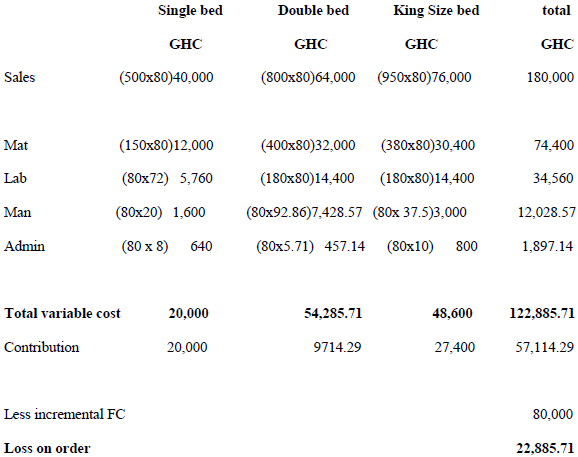
The order should be rejected because it will result in incremental loss of GHS 22,885.71 unless shalom is ready to pay higher price to cover the additional cost associated with producing the extra units.
